Can You Grow Lobelia In Pots? Yes – Try These Cultivars With A Rich Growing Medium

PERENNIALS > LOBELIA > CONTAINERS

Elizabeth is a Permaculture Garden Designer, Sustainability Consultant and Professional Writer, working as an advocate for positive change. She graduated from the University of St. Andrews with an MA in English and Philosophy and obtained a Diploma in Applied Permaculture Design from the Permaculture Association.
Reviewed By DAN ORI

Dan has over 27 years’ under his belt caring for plants and gardens. Working as a Horticultural Instructor and Consultant, he draws on a diverse range of experience that includes working as a Head Gardener, Tree Surgeon, Garden Centre Trouble Shooter, and writer of academic papers. Dan has a Level 3 Diploma in Horticulture and is currently a candidate for the RHS’s most prestigious award – The Master of Horticulture.
Contributions From EMILY CUPIT

Emily is a Gardening Writer, Photographer and Videographer from Derbyshire, UK. She is the Founder of Emily's Green Diary - a community of more than 75,000 people who share in her gardening journey.
IN THIS GUIDE
Lobelia is a popular choice for gardens in the UK.
There are a number of different species and hybrid types that you could grow, with flowers in an enticing range of colours and tones.
Of course, lobelias often make good border plants, but you might be wondering if you can grow these beautiful perennials in pots.
Can You Grow Lobelia In Pots?
Lobelia of many different types can make excellent plants for container gardens, as both annual and perennial types can be grown in pots.
Some of the most popular for container gardening are Lobelia erinus cultivars.

These half-hardy annuals are often trailing and are ideally suited to growing in pots or hanging containers.
However, perennial types and their hybrids can also be grown in pots, as long as the right conditions are provided.
I actually grew lobelia from seed last year and planted them out in one of my raised planters.
You can see the results (at different stages of the plant’s flowering cycle) in my images below:
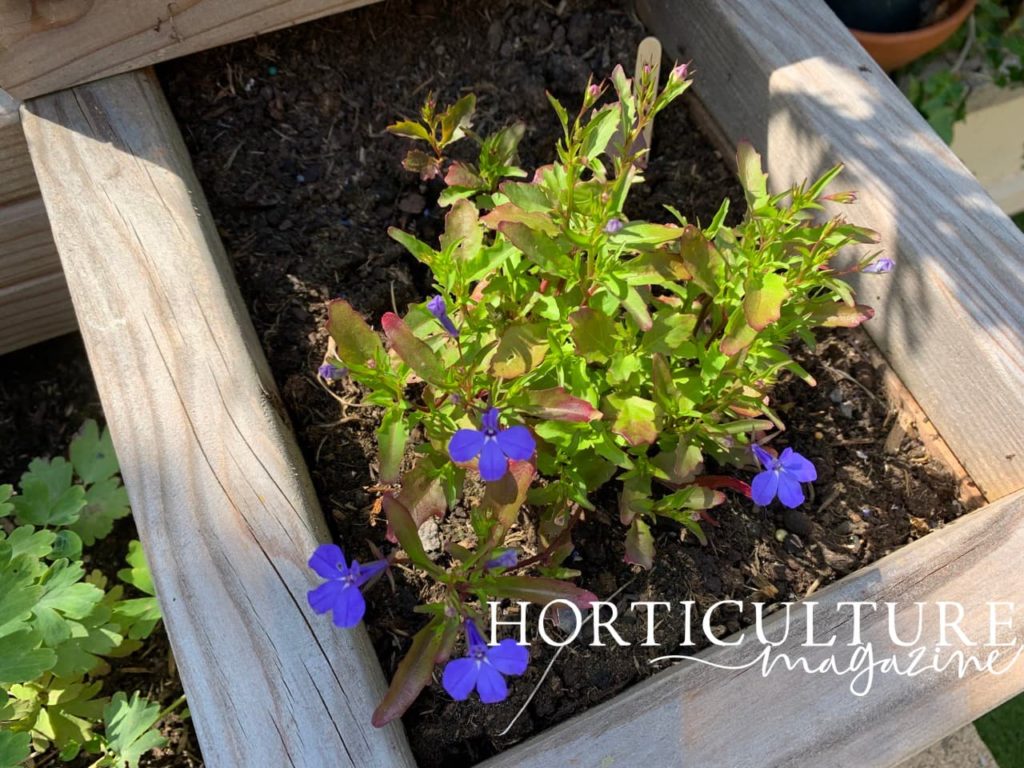
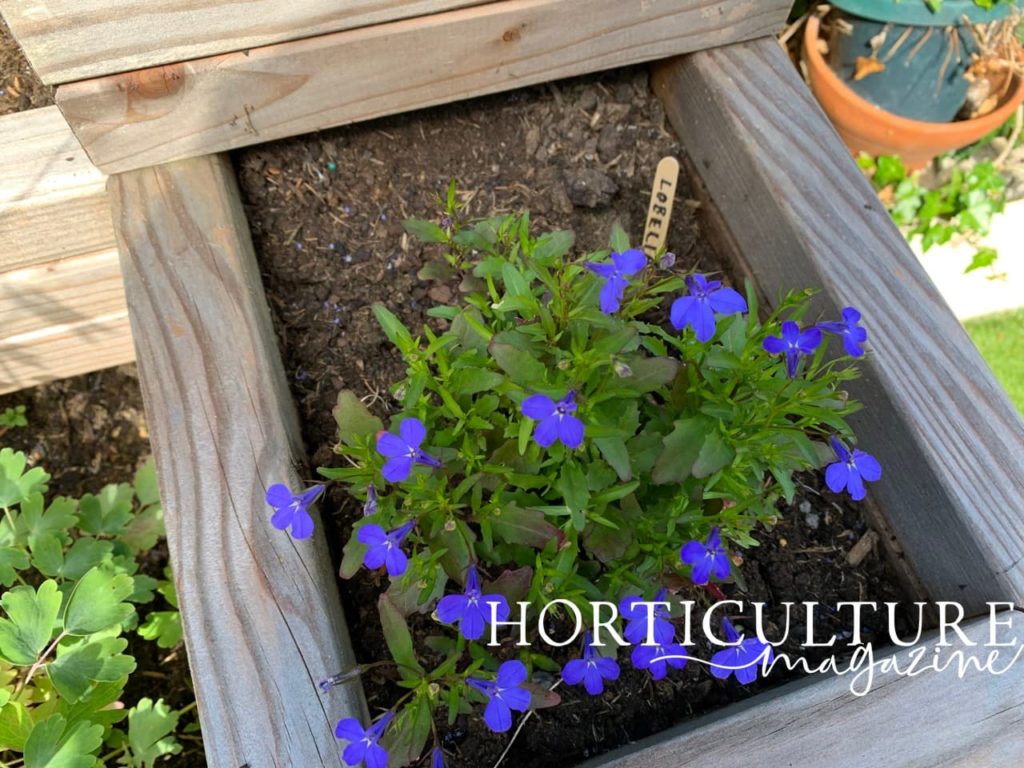

As you can no doubt see – what starts off as just a few flowers slowly morphs into a flurry of blooms that lasts throughout summer.
More tender types may sometimes be grown in containers so that they can be moved indoors or undercover during the coldest months.
Choosing A Container
When choosing a container, the first thing to decide is whether you will choose a hanging basket or a container that will sit on the ground.
Trailing lobelia can look lovely when in an elevated container, and hanging containers can help you to make the most of your space.

However, keeping up with watering needs may be a little more challenging.
When you choose your container, remember that you want to provide moist but free-draining conditions for annual types, so adequate drainage holes are essential.
However, some perennial types will like damper and less free-draining conditions, so make sure you think about which particular type of lobelia you have chosen to grow.
Choosing A Compost
The potting mix or growing medium that you choose will also depend in part on which type of lobelia you are growing.
That being said, all lobelia will tend to appreciate a growing medium that is relatively rich in organic matter and capable of retaining moisture sufficiently well.
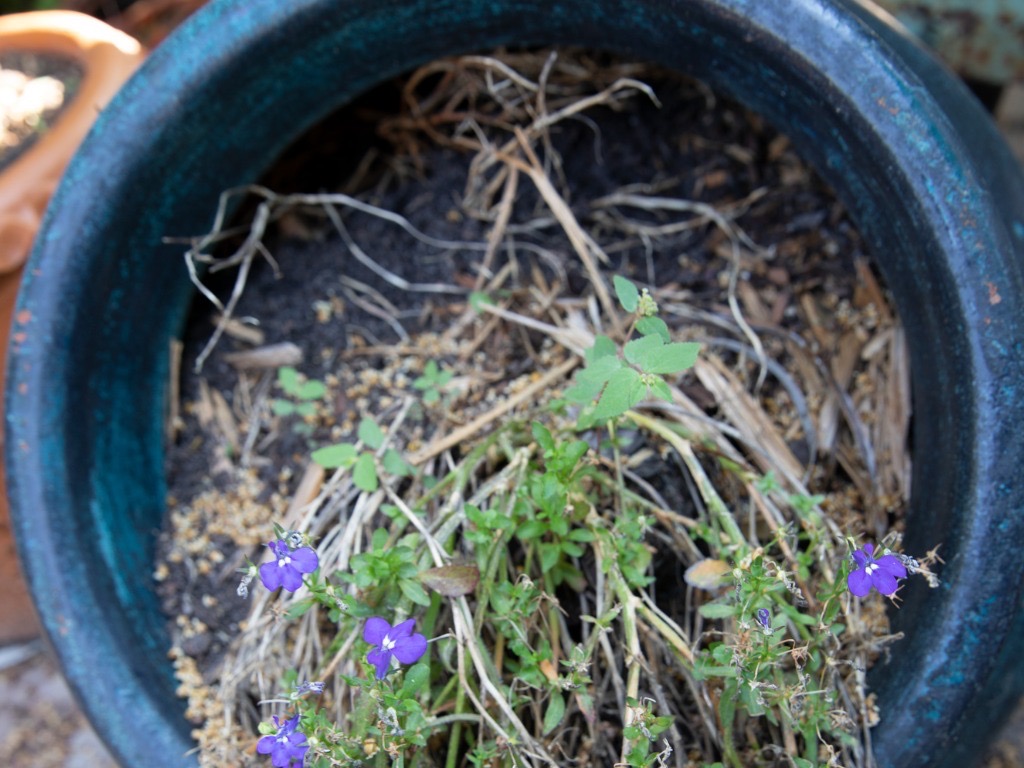
A multi-purpose peat-free compost with some homemade compost or well-rotted manure added in will work well.
“For plants like Lobelia, I make a water-retentive potting mix of one-third vermiculite, one-third coir and one-third good-quality peat-free compost,” shares Master Horticulturist Dan Ori.
A loam-based option is generally best for perennial types that will remain in a container over a longer period of time.
Potting Up
When planting lobelias in pots, make sure that you place potted specimens at the same depth that they were planted at in their previous pot.
Make a planting hole large enough to accommodate the root system or the plant or plants, place the plant into the hole and then firm back the growing medium around the outside.

It is also a good idea to add mulch or organic matter over the surface of your containers in order to retain moisture, which is essential in lobelia cultivation.
How Many Can You Plant Per Pot?
How many lobelias you can plant per pot will obviously depend on the size of the container and, again, on the type of lobelia you have chosen to grow.
It will also depend on whether you will be growing the lobelia alone or combining it with other plants in a mixed display.
Annual lobelias can look great alongside a range of other annual bedding plants commonly grown in containers and hanging baskets.
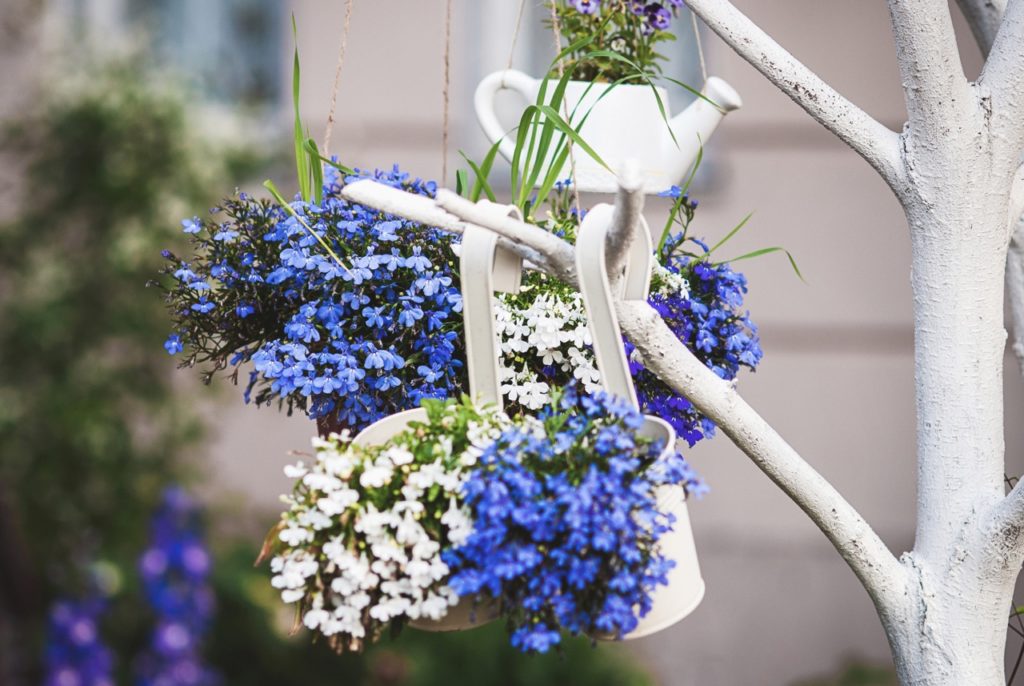
If you are growing annual lobelias in a container, each one should usually be placed around 10-15cm apart.
Perennial types typically require space of around 30cm.
Ongoing Container Care
Place containers in full sun or partial shade depending on the variety and where you live.
In hot summer areas, partial shade can be better for some types, helping them last for longer.
Water well and regularly.
Keeping up with water requirements is the most important thing when growing lobelia in pots.
“It is likely you will need to water your containers at least once a day in the summer, so placing your containers in trays of water will often help – I use grow bag trays,” explains Dan.
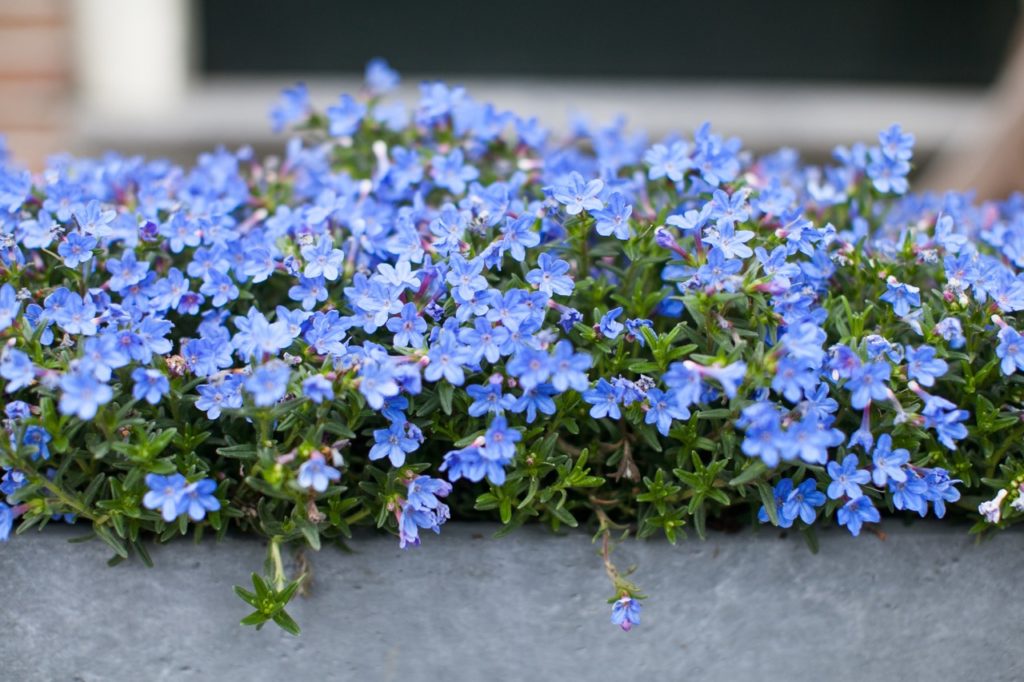
“If your containers dry out and plants start to wilt, water the surface of the pot slowly and then sink it into a bucket of water until submerged, when the air bubbles stop breaking the water surface.
“The planting mix should be rehydrated, but be warned, as you may need help since the pots will get heavier as they soak up the water.”
Remember, all lobelias like moist conditions, so never let the growing medium completely dry out.
Remember that more regular watering is usually required for plants growing in pots or hanging baskets than for those growing in the ground.
Mulch upon planting and replenish mulch around perennial plants each year.
Feed with a potassium-rich organic liquid feed every couple of weeks through the blooming period for best results.
Keep an eye out for slugs, snails and other pests and make sure to protect or move tender perennial types in winter.
